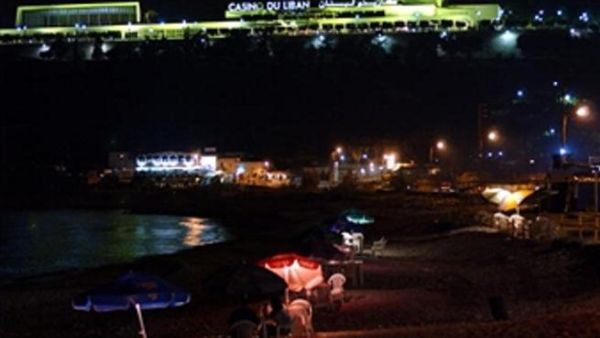On the heels of the recent tourism campaign “50 percent for 50 days” announced by the Lebanese Council for Promotions, the UAE foreign ministry decided to renew its travel advisory to Lebanon.
The timing is suspicious. The UAE, particularly Dubai, is Lebanon’s number one competitor in the tourist sector. The step could be construed as a warning to all Gulf Cooperation Council (GCC) citizens not to spend their vacations in Lebanon, as well as an open invitation for them to spend New Year’s Eve in the Emirates.
Accordingly, the GCC boycott of Lebanon is no longer political, but also touristic. As such, 2012 folds its final season with another misfortune. The story is not so much sad as it is destructive. Touristic Lebanon is now seen as an enemy by its brothers, while its restaurants and hotels wither away.
It is no longer enough for GCC countries to boycott Lebanon “under the table.” At the beginning of last summer, they marked Lebanon as off-limits for their citizens and managed to kill the summer tourist season.
This outcome, however, did not satisfy our brothers’ inflated ego. It made them more resolute to keep up the boycott.
According to involved sources, these countries decided to proceed with their devastating plans “under the table and over it,” until the end of seasons. This determination led the UAE foreign ministry to renew its travel warning to Lebanon, advising its citizens “to avoid nonessential travel to Lebanon.”
The warning was announced by Foreign Under Secretary Sheikh Abdullah bin Mohammed bin Butti Al Hamed, adding that “the ministry is keen on protecting people’s safety outside the country.”
The under secretary added that the Lebanon travel advisory “comes as the New Year holidays are approaching and as a result of the difficult and sensitive political circumstances in sisterly Lebanon.”
“We urge our citizens to abide by this decision until further notice, take precautions once outside the UAE, and refer to the instructions and travel tips on the foreign ministry’s website,” he continued.
The statement did not mention the circumstances and reasons behind the renewal of the advisory, but the reference to the New Year’s holiday was noted by Lebanese Minister of Tourism Fady Abboud, who described the timing as “suspect.”
He said the warning came following “statements by the president of the republic and the head of the army putting the safety of tourists above all else.” Abboud did not see any reason to keep Lebanon on the UAE or other GCC countries’ prohibition list for security concerns.
“In the US, there are more than 250 shootings per day. It is similar in Mexico, Brazil, and Colombia. Those countries are not prohibited, despite the fact that their security situation is more risky than Lebanon’s,” Abboud explained.
“The UAE in particular will gain from the boycott of Lebanon. Tourism over there is much better than it was before the boycott decision,” he added.
“So we tell them with all our love: It is not in your interest to make enemies with the Lebanese and what you are doing will hurt Lebanon and its people,” he said.
Abboud called on the GCC countries to deal with Lebanon realistically, saying that “the fears from six months ago were understandable, but today they cannot be justified. While the earlier boycott was political, today it became a touristic boycott due to vested interests.”
Thus, the final tourist season of 2012, Christmas and the New Year, can only be galvanized by local demand. According to Paul Ariss, president of the Syndicate of Owners of Restaurants, Cafes, Nightclubs, and Pastries in Lebanon, the initiative by the promotions council, “50 percent for 50 days,” will not be enough to recover from this setback.
He said the Arab decision to boycott Lebanon “is political. While it was expected that occupancy will reach 150 percent in Lebanon’s hotels, there is not one GCC or Arab guest.”
To make things worse, the impact of the crisis was not only limited to GCC citizens, it also affected Lebanese expats. “Today, the best New Year’s Eve party costs $500, while last year they exceeded $1,000,” Ariss explained.
According to a worker in a restaurant, “there used to be Arab visitors who would come in their private jets to spend their New Year’s Eve in Lebanon because of its famous nightlife. None of them came this year.”
All this has led Ariss to surmise that “we are awaiting a difficult year and wide scale closures in the sector in 2013.”








